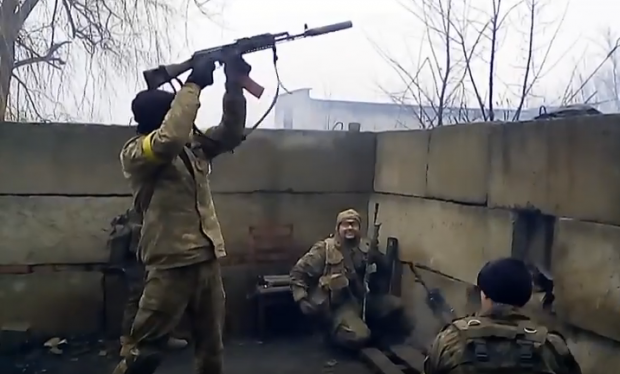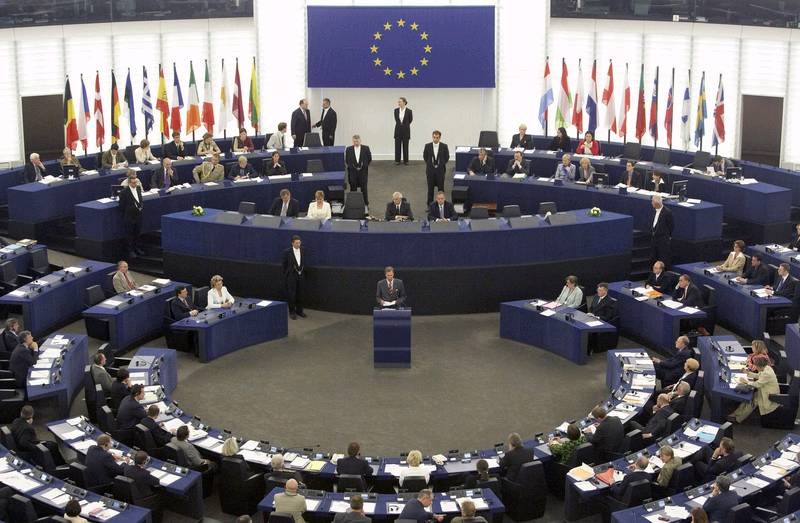Ukraine is experiencing “eurointegration fatigue.”
The most popular answer to the question “Which integration model is better for the national interests of Ukraine?” was “a new regional union including Ukraine, without Russia.”
These results were shown by a poll presented by the Institute of World Policy in its recent report. The poll was conducted by GfK Ukraine in the period of May 17-24, 2017 through telephone interviews (calls on mobile phones). In total 1000 respondents were surveyed aged 18 and older. The poll was conducted in all oblasts of Ukraine, except the territories of Donetsk and Luhansk oblasts, which are outside Ukraine’s government control, as well as the Autonomous Republic of the Crimea.
The main findings of the poll:
- Almost half of Ukrainians need more information on the status of implementation of the Association Agreement with the EU.
- Almost 40% are convinced that European integration of Ukraine is an irreversible process.
- The majority of Ukrainians don’t believe that the adoption of neutral status can defend Ukraine from Russian aggression.
1. How did your attitude toward the European Union change after the Revolution of Dignity of 2014?
When answering this question, the absolute majority of Ukrainians chose the option “didn’t change” (58%), 14% of respondents stated that their attitudes toward the EU improved, and another 24% said that it deteriorated.
Gender and education influenced the deterioration or improvement of the attitudes towards the EU significantly. Women turned out to be more euro-sceptical with only 10% of respondents saying their attitudes toward the EU improved (compared with 18% of male respondents), while the deterioration 28% of female respondents said their attitudes deteriorated (only 20% among men).
The level of euro-scepticism is almost twice as high among the respondents with a secondary and incomplete higher education (31% and 28% respectively) compared to more educated respondents (16%).
The visa-free regime was the key reason for the improvement of respondent’s attitudes (25%). The second top argument are hopes for the future positive changes that would lead to Ukraine’s partnership with the European Union (every fifth of those who stated improvement of their attitudes toward the EU). This option is especially popular among young respondents.
The majority of those whose attitude towards the EU has worsened explained their answer with the deterioration of the quality of life and economic situation in Ukraine (63%). The next most popular argument is that Ukraine lost territories and is at war because of the European integration aspirations (7%); this option was mostly chosen by residents of the eastern region, and least frequently in the west. Also, Ukrainians don’t blame the EU for not supporting Ukraine enough in the conflict with Russia: less than 1% of those respondents who said their attitudes towards the EU deteriorated named this reason.
2. Do you need more information about the benefits of the Association Agreement with the European Union for Ukraine?
37,5% of Ukrainians admitted that they need more information about the benefits of the Association Agreement, while 62,5% of Ukrainian citizens consider themselves to be well-informed. Residents of the West and North-Central regions (42% and 41% respectively) demonstrated the greatest need for information, while residents of the Eastern region showed less interest (26%).
Expectedly, those who are interested in the details of the Association Agreement would like to know primarily about the benefits of the Agreement for the ordinary citizens (49%) and all available benefits (45%). The third top option is the benefits of the Agreement for Ukrainian businesses (17%); this option has significantly more supporters among young people and male respondents (23% in both categories).
3. Do you need more information about the status of the implementation of the Association Agreement between Ukraine and the European Union?
On this question, the opinions of respondents were divided almost by half: 45% of Ukrainians would like to know more about the implementation of the Association Agreement, while 55% are satisfied with their awareness level. It is noteworthy that current status of implementation of the Association Agreement draws the most interest among older people (48%) and residents of the Western region (54%).
4. What are your associations with the European Union?
The answers to this question show that today the European Union does not have standardized associations among Ukrainians: half of the respondents did not manage to name any association at all, and the most popular answers did not get even 10%. Among the most frequently mentioned associations are a better quality of life (9%); civilization, cultural values, and European standards (9%); and European countries (8%). It should be noted that despite the presence of Euro-sceptics among the population, Ukrainians have no negative associations with the European Union: only 3% of all respondents associate the EU with lower quality of life, and other negative associations got less than 2% in total.
5. Do you think that European integration of Ukraine is an irreversible process?
There is no unanimity among Ukrainians on this question: 39% of respondents chose the option “Yes, there is no alternative to European integration,” 22% preferred the answer “No, Ukraine can stop European integration at any moment,” while 28% think that there is no European integration going on in Ukraine at all. Young respondents tend to believe that Ukraine can stop its European integration at any moment (28%, compared to 19% of middle-aged respondents and 21% of older respondents). People with higher education are the most convinced of the irreversibility of European integration of Ukraine (46%).
6. Which integration model is better for the national interests of Ukraine?
As already mentioned, answers to this question show that there is a certain “eurointegration fatigue” in Ukraine: the most popular answer was “a new regional union including Ukraine, without Russia» (25%). Another 22.5% of respondents chose the answer “Ukraine does not need membership in any alliance.”

It is noteworthy that when choosing between the membership in the EU and the NATO at the same time and separately, the majority of respondents chose the option “EU and NATO” (24%). Most supporters of membership in the EU and the NATO are among middle-aged people (28%), while a new regional alliance is mostly supported by young respondents (32%). The alliance with Russia is preferred by 7.5% of respondents.
7. Can a neutral status protect Ukraine from Russian aggression?
Considering the current discussion on security guarantees for Ukraine, we also decided to find out the attitudes of Ukrainians towards Ukraine’s possible neutral status as a tool to defend against Russian aggression. It turned out that 52% do not believe that the adoption of a neutral status will be able to protect Ukraine, 35% of Ukrainians do believe in that, and another 12% could not answer. A neutral status has the lowest support in Eastern region (28%), residents of this region are also most undecided about it (28%).







